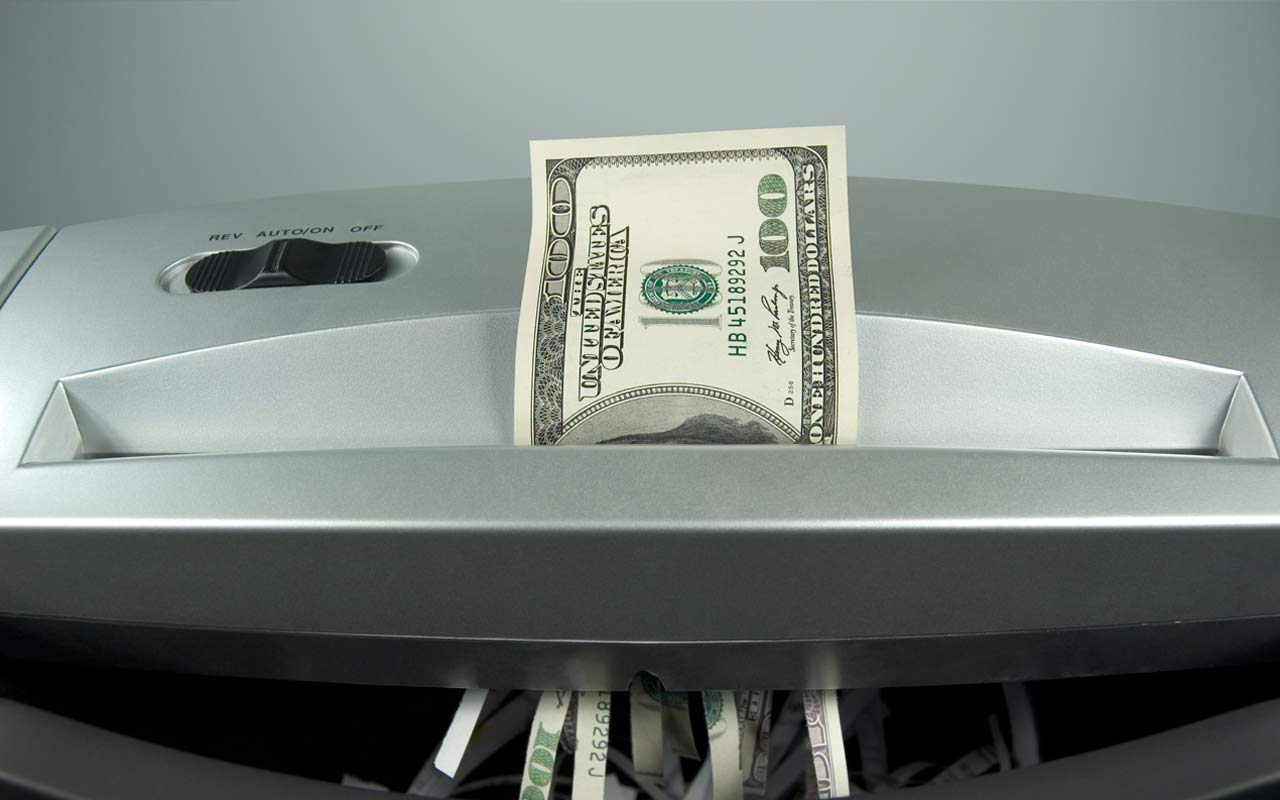A Sucker Born Every Minute?
The radical premise of a new book suggests that free markets, even when they function perfectly, don’t operate to the benefit of all.


Profit and prosper with the best of Kiplinger's advice on investing, taxes, retirement, personal finance and much more. Delivered daily. Enter your email in the box and click Sign Me Up.
You are now subscribed
Your newsletter sign-up was successful
Want to add more newsletters?

Delivered daily
Kiplinger Today
Profit and prosper with the best of Kiplinger's advice on investing, taxes, retirement, personal finance and much more delivered daily. Smart money moves start here.

Sent five days a week
Kiplinger A Step Ahead
Get practical help to make better financial decisions in your everyday life, from spending to savings on top deals.

Delivered daily
Kiplinger Closing Bell
Get today's biggest financial and investing headlines delivered to your inbox every day the U.S. stock market is open.

Sent twice a week
Kiplinger Adviser Intel
Financial pros across the country share best practices and fresh tactics to preserve and grow your wealth.

Delivered weekly
Kiplinger Tax Tips
Trim your federal and state tax bills with practical tax-planning and tax-cutting strategies.

Sent twice a week
Kiplinger Retirement Tips
Your twice-a-week guide to planning and enjoying a financially secure and richly rewarding retirement

Sent bimonthly.
Kiplinger Adviser Angle
Insights for advisers, wealth managers and other financial professionals.

Sent twice a week
Kiplinger Investing Weekly
Your twice-a-week roundup of promising stocks, funds, companies and industries you should consider, ones you should avoid, and why.

Sent weekly for six weeks
Kiplinger Invest for Retirement
Your step-by-step six-part series on how to invest for retirement, from devising a successful strategy to exactly which investments to choose.
Anyone who has taken Economics 101 is probably familiar with the proposition that free markets operate (mostly) on a principle of supply and demand, with businesses providing what consumers want, to the benefit of everyone when all is in balance. But Nobel laureates Robert Shiller and George Akerlof, of Yale and Georgetown universities, respectively, paint a darker picture of our economy in their new book, Phishing for Phools: The Economics of Manipulation & Deception (Princeton University Press).
The title comes from the Internet-born practice of phishing, which means to defraud someone by posing as a legitimate contact. For the authors, phishing is simply getting people to do things that are in the interest of the phisher but not of the target; phools are the targets. The radical (at least in economic circles) premise is that free markets, even when they function perfectly, don’t operate to the benefit of all. Instead, according to the book, “The free-market equilibrium generates a supply of phishes for any human weakness.”
The bulk of the book is a laundry list of the big and small ways we are phished for phools, ranging from the mortgage-backed securities debacle to more commonplace occurrences in our everyday lives. There’s a discussion of advertising, of course, with its uncanny ability to zero in on our vulnerabilities. The authors also give examples of home-buying and car-shopping rip-offs, credit card enticements to overspend, and food and drug travesties ranging from the meat-packing horrors exposed by Upton Sinclair in 1906 to Merck’s painkiller Vioxx, pulled from the market in 2004 after it was linked to heart attacks. You might be surprised to learn that the authors consider Cinnabons—those mouth-watering, 900-calorie treats—-a classic phishing ploy.
From just $107.88 $24.99 for Kiplinger Personal Finance
Become a smarter, better informed investor. Subscribe from just $107.88 $24.99, plus get up to 4 Special Issues

Sign up for Kiplinger’s Free Newsletters
Profit and prosper with the best of expert advice on investing, taxes, retirement, personal finance and more - straight to your e-mail.
Profit and prosper with the best of expert advice - straight to your e-mail.
Healthy skepticism. It all sounds reasonable. But didn’t we know this already? Don’t consumers have an inherent skepticism about advertising and salesmanship? Haven’t the fields of behavioral finance and financial therapy boosted our awareness of biases that might cloud our judgment and emotional baggage that can derail our decision-making? And honestly, are Cinnabons all that bad?
Yes, yes, yes and no, said Shiller when I spoke with him. Start with Cinnabons. It’s not that they’re not yummy; it’s that the company has taken the greatest pains to exploit our dietary weaknesses. And it’s not that we’re not aware of rip-off artists or that we’re not learning more about how we are vulnerable as consumers. But the book contends that phishing, as well as phoolish consumers, are the natural order of things and not a departure from it.
I’m not sure I buy the argument about Cinnabons; life would be dreary without any splurges. And despite the book’s premise, the picture isn’t as bleak as it seems, even to Shiller. “I’m an optimist. I think we’re coming to a better world,” he says. But that requires institutions such as the Securities and Exchange Commission to be vital safeguards in a phishing economy.
Buyer beware. What can we do to up our game—to put a little more caveat in our emptor? “On numerous occasions I’ve recommended reading magazines like Kiplinger’s,” says Shiller. (We agree!)
Plug aside, Shiller says that consumers must be both educated and on their guard. “It’s an ongoing process. When you live in a phishing equilibrium, you can’t rely on a salesperson. You have to understand the biases of your information sources. And you have to try to pursue sources that are ethical.” That’s particularly important advice for investors in financial markets, says Shiller. “There’s no way to tell how much of a role phishing plays,” he says. But rest assured, “it plays a role.”
Profit and prosper with the best of Kiplinger's advice on investing, taxes, retirement, personal finance and much more. Delivered daily. Enter your email in the box and click Sign Me Up.

Anne Kates Smith brings Wall Street to Main Street, with decades of experience covering investments and personal finance for real people trying to navigate fast-changing markets, preserve financial security or plan for the future. She oversees the magazine's investing coverage, authors Kiplinger’s biannual stock-market outlooks and writes the "Your Mind and Your Money" column, a take on behavioral finance and how investors can get out of their own way. Smith began her journalism career as a writer and columnist for USA Today. Prior to joining Kiplinger, she was a senior editor at U.S. News & World Report and a contributing columnist for TheStreet. Smith is a graduate of St. John's College in Annapolis, Md., the third-oldest college in America.
-
 How Much It Costs to Host a Super Bowl Party in 2026
How Much It Costs to Host a Super Bowl Party in 2026Hosting a Super Bowl party in 2026 could cost you. Here's a breakdown of food, drink and entertainment costs — plus ways to save.
-
 3 Reasons to Use a 5-Year CD As You Approach Retirement
3 Reasons to Use a 5-Year CD As You Approach RetirementA five-year CD can help you reach other milestones as you approach retirement.
-
 Your Adult Kids Are Doing Fine. Is It Time To Spend Some of Their Inheritance?
Your Adult Kids Are Doing Fine. Is It Time To Spend Some of Their Inheritance?If your kids are successful, do they need an inheritance? Ask yourself these four questions before passing down another dollar.
-
 Namaste Invested: Look to Yoga to Build Your Wealth
Namaste Invested: Look to Yoga to Build Your WealthInvestor Psychology It’s uncanny how the principles of yoga apply to financial success. Here are five elements of yoga that are particularly useful for personal wealth.
-
 With Money, What You Do Matters More Than What You Know
With Money, What You Do Matters More Than What You KnowInvestor Psychology Even the smartest, most well-informed retirement savers can lose a boatload of money if they don’t have their heads on straight. An interview with the author of “The Psychology of Money” reveals some interesting insights on how to build and maintain your wealth.
-
 Lessons Learned From the College Bribery Scandal
Lessons Learned From the College Bribery ScandalPaying for College Being a snowplow parent who removes obstacles is not the way to raise emotionally healthy, money-smart kids.
-
 7 Golden Rules for Investing and Advanced Estate Planning
7 Golden Rules for Investing and Advanced Estate PlanningInvestor Psychology You've worked hard to build your nest egg. To protect it, for yourselves and for your heirs, follow this set of golden rules.
-
 The 3 Worst States for Millionaires
The 3 Worst States for MillionairesInvestor Psychology These states have the lowest concentrations of millionaire households in the U.S.
-
 12 Reasons You'll Never Be a Millionaire
12 Reasons You'll Never Be a MillionaireInvestor Psychology Wealthy people usually aren't born that way.
-
 Don't Let Peer Pressure Spoil Your Retirement
Don't Let Peer Pressure Spoil Your RetirementInvestor Psychology If you try to make your retirement look like the typical picture that comes to mind, you may find yourself dissatisfied, bored or restless. Instead, look beyond these retirement myths to find what will make you truly happy.
-
 To Save More, Tap Into Your Emotions
To Save More, Tap Into Your EmotionsInvestor Psychology Objecs that have special meaning to you could be the key to identifying your savings goals.